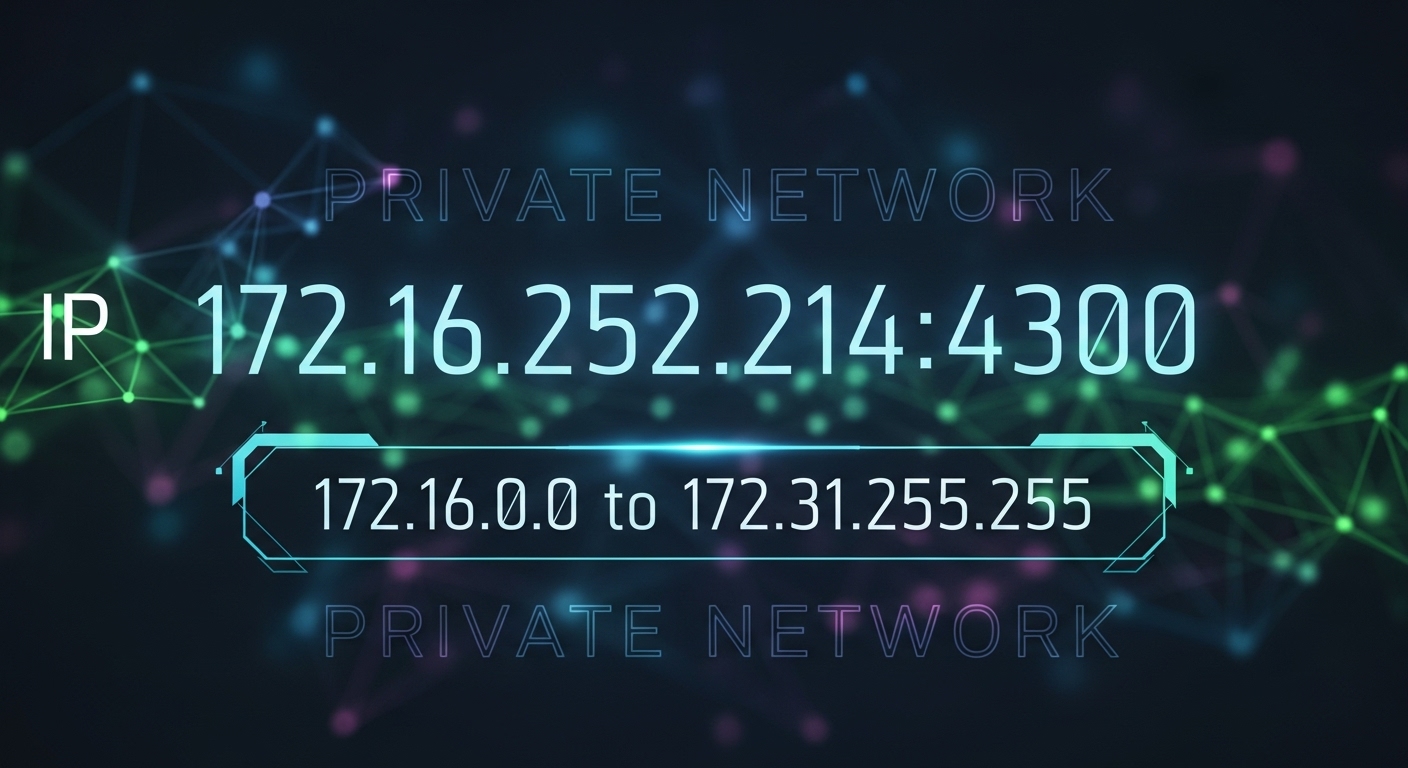In today’s connected world, internal IP addresses and ports play a vital role in managing communication between devices. One such identifier, 172.16.252.214:4300, is a private network address used for localized data transmission and internal operations. Though it may seem like a random sequence, 172.16.252.214:4300 is a structured and secure address that supports seamless digital communication across multiple systems within a controlled environment.
What Does 172.16.252.214:4300 Represent?
The keyword 172.16.252.214:4300 combines an IP address and a port number, two essential components of computer networking. The IP address (172.16.252.214) identifies a specific machine or server within a private network, while the port number (4300) serves as a unique channel for communication. Together, 172.16.252.214:4300 ensures that data reaches the right device and application without interference or loss. This precise routing system enables faster and more organized internal communication, especially in large organizations or data-driven systems.
Why 172.16.252.214:4300 Is a Private Network Address
The IP range from 172.16.0.0 to 172.31.255.255 is designated for private network usage. This means 172.16.252.214:4300 is not accessible from the public internet and is typically used within local or enterprise systems. Such addresses allow companies to build internal networks that remain secure from external threats. Because 172.16.252.214:4300 operates privately, it can be freely assigned to devices, routers, or applications without conflicting with public IP allocations.
The Role of Port 4300 in 172.16.252.214:4300
Every IP address can have multiple ports, each dedicated to a different service or application. In the case of 172.16.252.214:4300, port 4300 might be linked to a specific internal service, database, or monitoring tool. This division of ports prevents overlap and improves efficiency. For example, one port may handle emails, another may manage file transfers, while 172.16.252.214:4300 could be reserved for a custom application. This structured system keeps internal operations well-organized and prevents performance bottlenecks.
Security Benefits of Using 172.16.252.214:4300
Since 172.16.252.214:4300 exists within a private IP range, it provides an additional layer of security. External users cannot directly reach it, which protects sensitive data from unauthorized access. However, network administrators still need to ensure firewalls, VPNs, and access controls are configured correctly. Even within a private setup, internal vulnerabilities can exist. Monitoring traffic through 172.16.252.214:4300 helps detect unusual activity and maintain a secure network environment.
How 172.16.252.214:4300 Supports Network Efficiency
Private addresses like 172.16.252.214:4300 enable organizations to segment their networks efficiently. By assigning specific IP and port combinations to internal systems, data flow becomes more predictable and manageable. For instance, 172.16.252.214:4300 might serve a specific department or service, helping reduce traffic congestion and improving performance. Network segmentation through private IPs also makes troubleshooting easier, as administrators can quickly pinpoint issues within isolated sections.
Monitoring and Troubleshooting 172.16.252.214:4300
IT teams regularly test connections like 172.16.252.214:4300 using diagnostic tools such as ping and traceroute. These tests help identify latency, connection errors, or packet loss between internal systems. If a problem arises, administrators can analyze logs related to 172.16.252.214:4300 to determine whether the issue is software-related, hardware-based, or due to configuration errors. Regular performance checks ensure consistent uptime and reliability for all connected services.
The Future of Internal IPs Like 172.16.252.214:4300
With the expansion of enterprise cloud systems and Internet of Things (IoT) networks, private IPs such as 172.16.252.214:4300 will continue to play an essential role. They help maintain data integrity and prevent unauthorized access in large-scale infrastructures. Even as IPv6 adoption grows, IPv4-based addresses like 172.16.252.214:4300 remain foundational in many internal networks due to their simplicity and compatibility with existing systems.
Conclusion
The IP and port combination 172.16.252.214:4300 is more than just a network identifier—it’s a cornerstone of private communication within modern IT infrastructures. It supports security, organization, and performance by managing how data moves across devices and applications. Understanding how 172.16.252.214:4300 functions gives network professionals the clarity they need to maintain efficient and secure internal systems in an increasingly digital world.
